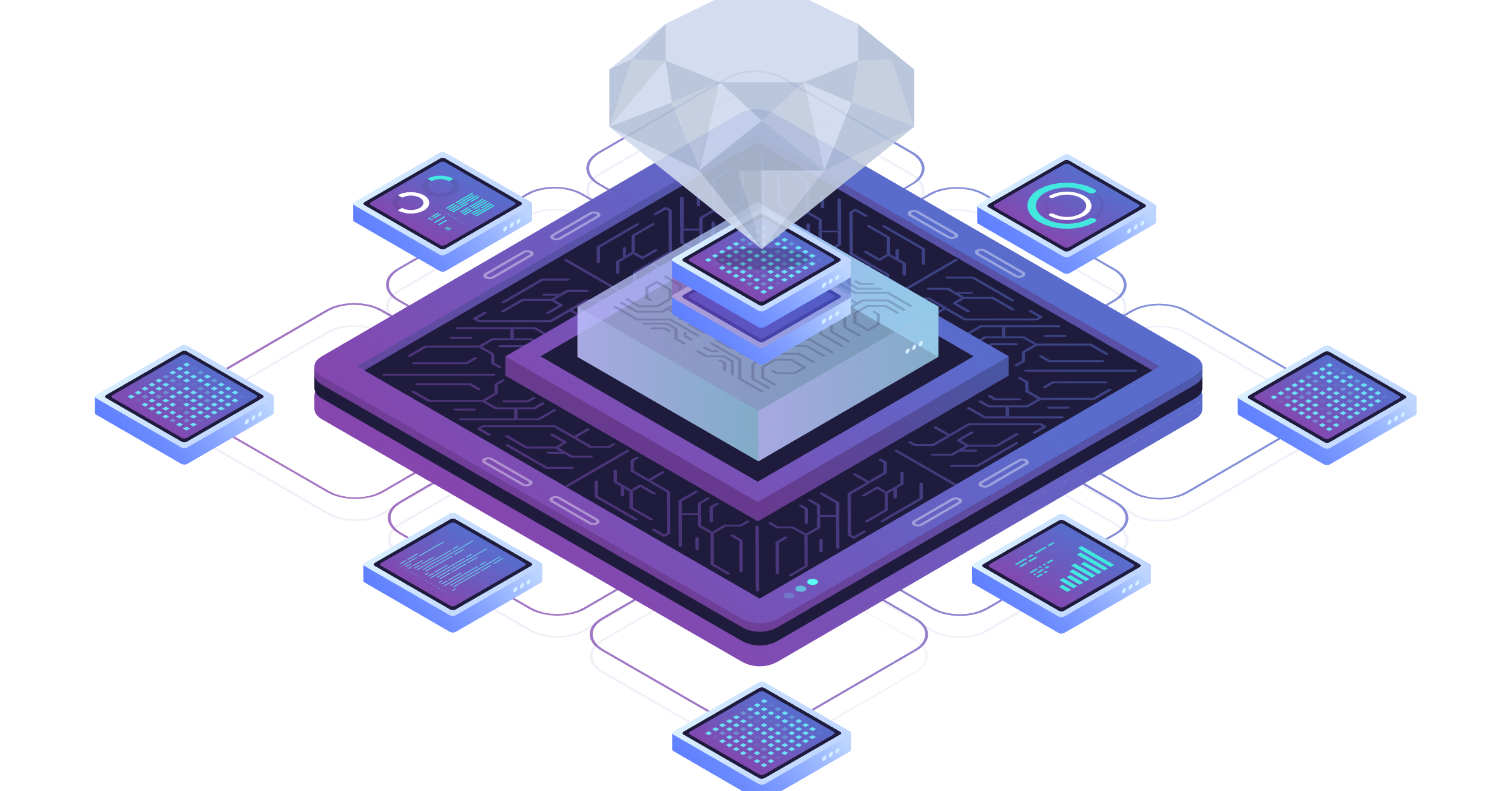How much CPU and RAM does my website need?

Trying to figure out which hosting plan you should purchase for your website can be a daunting task, particularly when you are just getting started.
The most common questions that our support team answers are related to picking the correct package:
"How do I know which hosting plan is right for my website and my plans for future development? "
"There are a lot of distinct features mentioned on each plan, how do I know which ones are important for my sites speed and reliability?"
We've all been in this position at some point and if you aren't sure of the answer to the questions above, you're in the right place!
When it comes to choosing your plan, the hardware amongst our shared hosting platforms are the same across the board. This means that all you need to focus on is a few key aspects of the hosting account that matter (CPU, RAM & Storage) and narrow down your choices from there!
What is RAM?
RAM stands for Random Access Memory. You can think of RAM as being similar to your short term or working memory. In the same way your brain utilises your short term memory to do simple calculations in your head while remembering why you're doing the calculation, the brain of the computer, the CPU (Central Processing Unit) uses the RAM to hold onto the short term data that it needs to remember and recall quickly while completing its assigned task.
For example, when you load a webpage, your RAM will hold onto the users information, the pages they've visited, the ad's they are shown and the suggested links just to name a few. Now for a human, remembering and updating all of this information constantly is a challenge because even though a thought might be in our short term memory, most of us don't have full control of how quickly we forget things.
For a computer dealing with this information for just a single user is very easy because the data for this user will be stored on the RAM until it is told to remove it. This means that a small portion of your RAM is used up for each query in exchange for speedy calculations and a quick experience for your visitor. This also means that if your site is trying to complete too many tasks, it could use up all of the available RAM and will then have to clear through the tasks it already has before moving onto the next one. This is what causes your website to slow down or even appear unavailable with a 503 Error.
What is a CPU?
As mentioned earlier, the CPU is the brain of the computer. Your server will have multiple CPU cores, similar to your home computer however you will share the CPU cores with other users on the server.
The CPU handles requests made to your server. For instance, when a visitor clicks onto your site, the queries that run that build the site and deliver the webpage will be processed by your CPU in the order they are received.
While your CPU can process multiple requests at once, if it receives too many requests it can become overloaded. This wall cause the performance on the site to slow down dramatically. Generally you will see this in cases of high traffic or plugins / scripts that generate a large number of simultaneous requests.
What is Disk Space?
If we think of RAM as your short term or working memory, your disk space is closer to your long term memory.
Your disk stores all of the files that your website may need on either an SSD (Solid State Drive) or on an NVME (NonVolatile Memory Express) and we will discuss the differences between these shortly.
Your long term memory is much slower than your working memory as your brain does not need to be able to instantly recall this information and will have to do a small amount of thinking before retrieving something from long term memory - Similar to when you can't think of a word but its on the tip of your tongue, Your brain has it stored somewhere but it needs a second or two to find it.
This is also the case for computers. The data that is needed immediately will be stored in your RAM. This will include the working data for queries that impact your site speed whereas long term files and core site files that are not being constantly accessed to perform queries can be stored in the long term memory.
This is because RAM is significantly faster than normal storage Disks and thus much more expensive so the computer (or server) will have much less RAM compared to Disk Space.
SSD vs NVME storage
This is not a difference that will make or break your site performance however it is still worth covering.
While your CPU and RAM are blazing fast, they can be held back or bottlenecked by the speed of your storage. While we ensure that all of our storage hardware and top of the line, there is a clear difference in speed when comparing the older SSDs to newer NVMEs.
SSD's are a slightly older version of storage technology. While significantly faster than the even older HDDs that you may be familiar with, they aren't quite as fast as the newer NVME drives available today.
SSD | NVME |
- Slower | + Faster |
+ Cheaper | - More expensive |
- Less energy efficient | + More energy efficient |
While the above table does not cover all of the differences between NVME and SSD storage options, it highlights the most important difference - speed.
SSDs are used on our standard shared servers (Amethyst & Ruby) and our premium servers utilise NVME storage (Sapphire and above)
Standard Vs Premium servers
As a shared hosting customer, you have the choice between two server types - Standard Shared or Premium Shared.
There are several differences between these servers however we will only cover those relevant to choosing your hosting plan in this guide.
Benefits of Premium Shared Plans (Sapphire, Diamond & Tanzanite) |
+ Lower population The servers population will be lower so you will be sharing the server with fewer people |
NVME Storage Faster than SSD storage |
While we still suggest reading further to find your recommended plan, there is one very important point to consider when choosing your hosting plan and server type - upgradability.
As these servers exist on different clusters, the configurations are different. This means that if you were to start with a Ruby plan (Standard Shared) and later down the line wanted to upgrade to a Sapphire plan (Premium Shared), this would require an internal migration. The migration will be conducted manually and as such an upgrade will not be instant.
Moving to the new server and will also result in your server having a new IP address. If your nameservers are held with another provider, your records will have to be updated to ensure the site remains available.
If you feel that you may need to upgrade to a premium server, we would suggest starting on the Sapphire plan as upgrading from this plan will allow you to stay on the same server. This means your upgrade will be instant and your IP address will stay the same and your records will not need to be updated.
What resources do I actually need?
This question is difficult to give a blanket answer to as every site differs.
From the intended use to the plans for future development, your sites resource requirements will vary from sites that on the surface look similar to yours and will continue to increase / decrease as new advancements are made in storage technology and as the site is developed and grows.
You can find a list of the available plans on the Krystal website (Link opens in a new tab)
I will break down the generic recommendations for the most common sites we host however I would strongly suggest speaking to your developer before making the decision on your hosting plan as they will be most familiar with your site and can advise you on what they feel the site will require. Failing this, you can contact our sales team (Link opens in a new tab) and we will do our best to advise you further.
Small Sites
For a smaller website (I.E a small WordPress blog) we would generally recommend either the Amethyst or Ruby plan.
Both of these plans utilise SSD storage so the choice will normally come down to how large the site is and how many domains you wish to use as the Amethyst plan gives you 10GB of storage space and 1 Domain whereas the Ruby plan gives you unlimited sites and unlimited storage (Subject to T&Cs).
Medium sites
A "Medium" website would encompass E-Commerce sites that receive a small amount of traffic (This could be either a WordPress installation that utilises WooCommerce or a Magento installation).
Any E-Commerce site will require higher resources regardless of the traffic due to the high number of queries and as such, we would generally recommend a premium server to begin with to avoid having to move the site manually in the future. As such for a smaller E-Commerce site, you will generally be looking towards either a Sapphire or Diamond plan dependant on your storage requirements.
In most cases the Sapphire plan will suffice as both of these plans utilise NVME storage and as such the choice will come down to your developers recommendations as to the CPU and RAM requirements and the storage requirements as the Diamond plan gives you double the resources of the Sapphire plan.
Large sites
Larger sites will generally encompass larger E-Commerce sites that receive high amounts of traffic resulting in higher resource usage.
For a larger site, we would suggest either the Diamond or Tanzanite plan however we strongly recommend speaking to your developer before making your decision as they will be able to give you the most accurate recommendation.
Additional options
In some cases, certain sites or projects just aren't suited to Shared hosting regardless of the resource requirements.
Whether its due to needing specific packages or escalated privileges, you may wish to opt for a more advanced solution such as a VPS or Dedicated Server.
This is not a decision you should make without speaking to your developer first - as they will be able to recommend the best solution and should be able to tell you if a shared hosting platform is suitable for your project.
Conclusion
Choosing your hosting plan can be a daunting task but hopefully now you feel better equipped to make this decision or have the tools to speak to your developer and understand their recommendation!
While we strongly suggest speaking to your developer, our sales team is on hand to answer any questions you may have regarding your hosting plan and we have a guide that covers contacting Krystal sales and support (link opens in a new tab).
